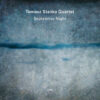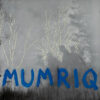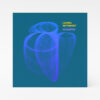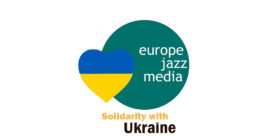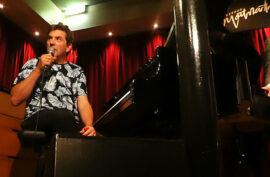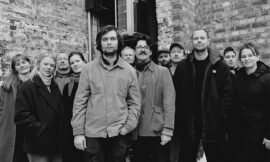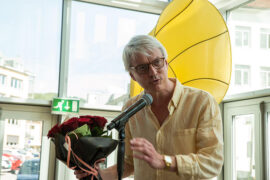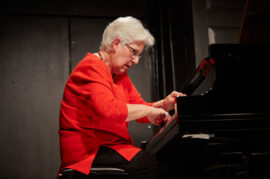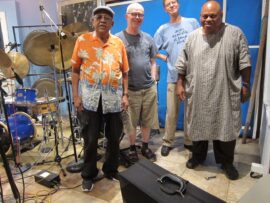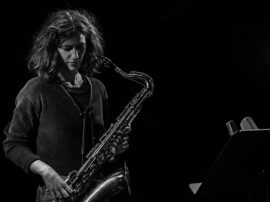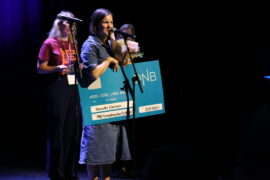
Nabelóse is the duo of Viennese Ingrid Schmoliner who plays the prepared piano and sings and Greek, Berlin-based Elena Kakaliagou who plays the French horn and sings. Omokentro is the second album of the duo, following the self-titled debut album (Corvo, 2017), and was recorded in the big water reservoir in Berlin-Prenzlauer Berg as part of the fourth edition of Bohemian Drips label’s Speicher – festival for site-specific music in August 2020. The album is dedicated to the duo’s friend, Austrian double bass player Thomas Stempkowski who passed away in June 2021.
The idiosyncratic reverberating acoustics of the water reservoir as well as the two very different social environments – with and without an audience, informed Nabelóse’s music. The Bohemian Drips label recorded in the same location other albums by like-minded, sonic alchemist outfits like Microtub and the duo of Axel Dörner & Richard Scott. The music of Nabelóse draws inspiration from contemporary and minimalist music, Greek folk music, or Schmoliner’s English-language compositions for voice, but Schmoliner and Kakaliagou always blur the lines between the composed and the improvised parts of their music.
Omokentro highlights the highly personal languages of Schmoliner and Kakaliagou as well the imaginative ways they employ the unique acoustics of the water reservoir to the benefit of the music and suggest subtle and lyrical dramatic textures. Schmoliner plays inside the prepared piano with wooden sticks, porcupine needles and e-bows to approximate the aesthetics of electronic music. Kakaliagou uses extended breathing techniques that make the French horn sound like the wind, the sea, or a roaring animal. The opening pieces, «Tauchen» and «Kern», without the audience, have a mysterious ritualist quality, and gently explore the acoustics of the water reservoir and fill it with sustained tones, and a church bells-like pulse. The other three pieces were recorded with the audience and offered a more dense and layered sound. «Walking» suggests an obviously resonant, melancholic but cinematic atmosphere of loneliness. «Wolf’s Path» is the most dramatic piece, with more restless, tense but ceremonial overtones. The last piece “Amygdalaki” adapts a popular, beautiful melody from the island of Skyros in Greece, and sounds like an irreverent Gregorian hymn. Playing in this space served remarkably the experimental, alchemist sonic vision of Nabelóse.
Eyal Hareuveni
Elena Kakaliagou (v, frh), Ingrid Schmoliner (v, prep. p)


